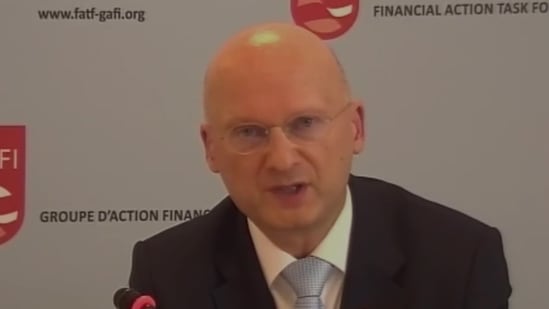FATF expresses concerns about terrorist financing risk environment in Taliban-ruled Afghanistan
“The FATF affirms recent UN Security Council Resolutions on the situation in Afghanistan. In particular, UNSCR 2593 (2021) demands that Afghan territory not be used to threaten or attack any country or to shelter or train terrorists, or to plan or to finance terrorist acts,” the FATF said.
The Financial Action Task Force (FATF) on Thursday expressed its concerns about the money laundering and terrorist financing risk environment in Afghanistan due to the recent events in the country, in reference to the Taliban’s ascension to power.

Further, the FATF also reiterated the resolutions adopted by the United Nations security council (UNSC) regarding the situation in Afghanistan and mentioned that the country’s territory should not be used to threaten or attack any other country.
“The FATF affirms recent UN Security Council Resolutions on the situation in Afghanistan. In particular, UNSCR 2593 (2021) demands that Afghan territory not be used to threaten or attack any country or to shelter or train terrorists, or to plan or to finance terrorist acts,” the global money laundering and terrorist financing watchdog said in a statement.
“The FATF calls on all jurisdictions' competent authorities to provide advice and facilitate information sharing with their private sectors on assessing and mitigating any emerging ML/TF risks identified, in accordance with the risk-based approach,” it further said.
Meanwhile, the watchdog also mentioned that non-profit organisations working in the war-torn country and other actors providing humanitarian assistance should be ensured of delivering the aid needed in the region “without delay, disruption or discouragement.”
“The FATF calls on all jurisdictions to protect NPOs from being misused for terrorist financing,” it said. The recommendations by the FATF to ensure this included conducting sustained and targeted outreach that were consistent with their recommendations, “while respecting human rights and fundamental freedoms.”
Mentioning that it would “closely monitor” the changes in money laundering and terrorist financing risks in Afghanistan, the FATF also said that it would consider all options to “help promote security, safety and the integrity of the global financial system.”
On Thursday, the FATF also retained Pakistan in its grey list. “Pakistan has largely addressed 30 out of the 34 items, most recent action plan which was in June this year focused on money laundering,” FATF president Marcus Pleyer said. Further, the body also placed Turkey under surveillance for shortcomings in combating money laundering and terrorism financing, news agency AFP reported.






